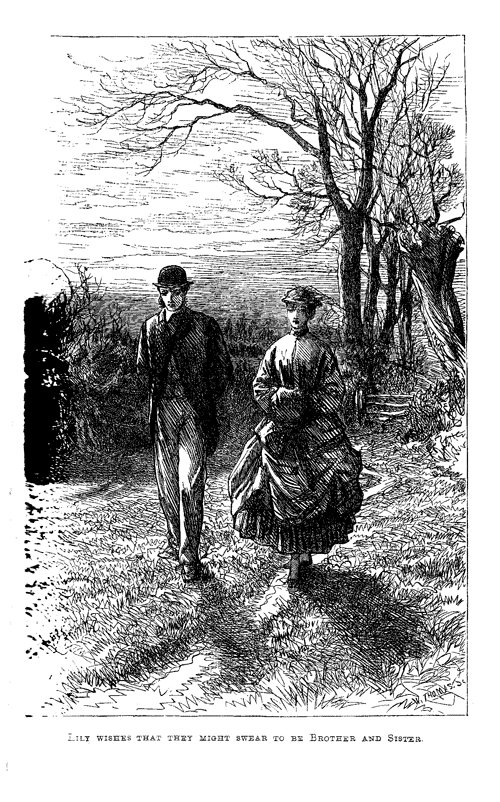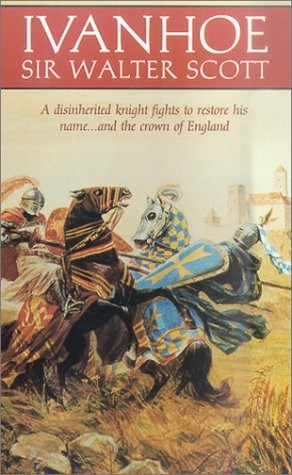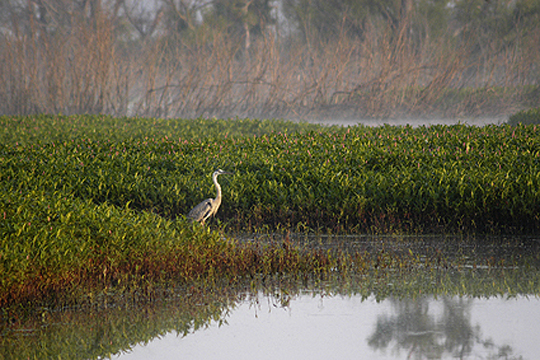Last Chronicle of Barset
 If I’d known Trollope’s Last Chronicle of Barset was 900 pages long, I might have been daunted. Reading it on the Kindle, none of the sheer massiveness of the physical book tempted me to give up on it despite lots of interruptions as I read it. It brings to a conclusion the six novels of Barsetshire, all of which I’ve now read.
If I’d known Trollope’s Last Chronicle of Barset was 900 pages long, I might have been daunted. Reading it on the Kindle, none of the sheer massiveness of the physical book tempted me to give up on it despite lots of interruptions as I read it. It brings to a conclusion the six novels of Barsetshire, all of which I’ve now read.
The plot centers around the unfortunate figure of Mr. Crawley, a poor clergyman allegedly patterned after Trollope’s own father. He was introduced earlier in the series, and in the opening pages of this book we’re told that he has been accused of stealing twenty pounds. No one who knows him believes he is guilty, but somehow matters escalate and he faces trial. The ripples of this spread throughout the community and we are (happily, in my case) reacquainted with a large cast of familiar characters, all of whom are to some degree aware of, and involved with, this basic problem.
I was moved by this novel. It made me think about the line between perfectionism and principle, and about character and generosity. The intricate tapestry of Mr. Crawley’s plight and its impact on so many diverse people provided a glimpse of how a connected community functions, for better and for worse. Trollope has been faulted by some (as he notes in his conclusion to the novel) for sketching out the relational lives of his clergymen without depicting in much depth their sense of calling or ministry. But in creating such a this-worldly view of Barsetshire, he ends up showing the church at work — even without casting it in religious language and themes.
We say goodbye to some important characters in this story, and I found myself crying for both of them — despite the fact that one of them was very dear, and the other very notorious. Like other Victorian novels this one has its longeurs, but the attentiveness and depth with which Trollope creates characters is worth every painstaking description and every carefully noted nuance.
There were a couple of plotlines I could have done without. I’m tired of hearing about John Eames and Lily Dale; both of them annoy me. Lily, as one reviewer noted, deserves a slap with a wet fish, and Johnny is irritatingly obtuse in his affairs with women. As in The Small House at Allington, he gets himself into almost-serious trouble with a London maiden through a combination of flirtation and spinelessness, all while allegedly saving his heart for Lily. The other plot involves an artist, a bored matron, and a beautiful young model in London, and this plotline seems so gratuitous I found myself scratching my head over why it was there at all.
These sidelines notwithstanding, I loved The Last Chronicle of Barset. It was the perfect farewell to this series, leisurely enough for a Northeastern winter read and full of insight and heart. The good news is that if I grow homesick for these characters I can either read these books again or start on the Palliser chronicles, in which some of them apparently reappear.




5 Comments
hopeinbrazil
It’s been a long time since I read this. I remember being very disappointed that Mr. Crawley (who I disliked in his first appearance in the series) was the focus of the final book. But I don’t remember what else I thought about the book. You make me want to read the Chronicles of Barset all over again.
Janet
I felt exactly the same way at first! Then at some point, many pages in, I crossed a line and started caring about him.
Barbara H.
Wow, 900 pages! I haven’t read any Trollope. Maybe some day….
Jessica Snell
I loved the Barsetshire stories when I read them – though Crawley’s storyline was so real and so sad it was hard to read – but I didn’t know some of the characters reappeared in the Palliser novels! Encourages me to give those another try.
Sherry
I’m planning to read some Trollope this year, but I’m not sure whether to read the Barset books in order, some of which I’ve already read but don’t really remember, or just read whichever ones I happen to come across at the library.